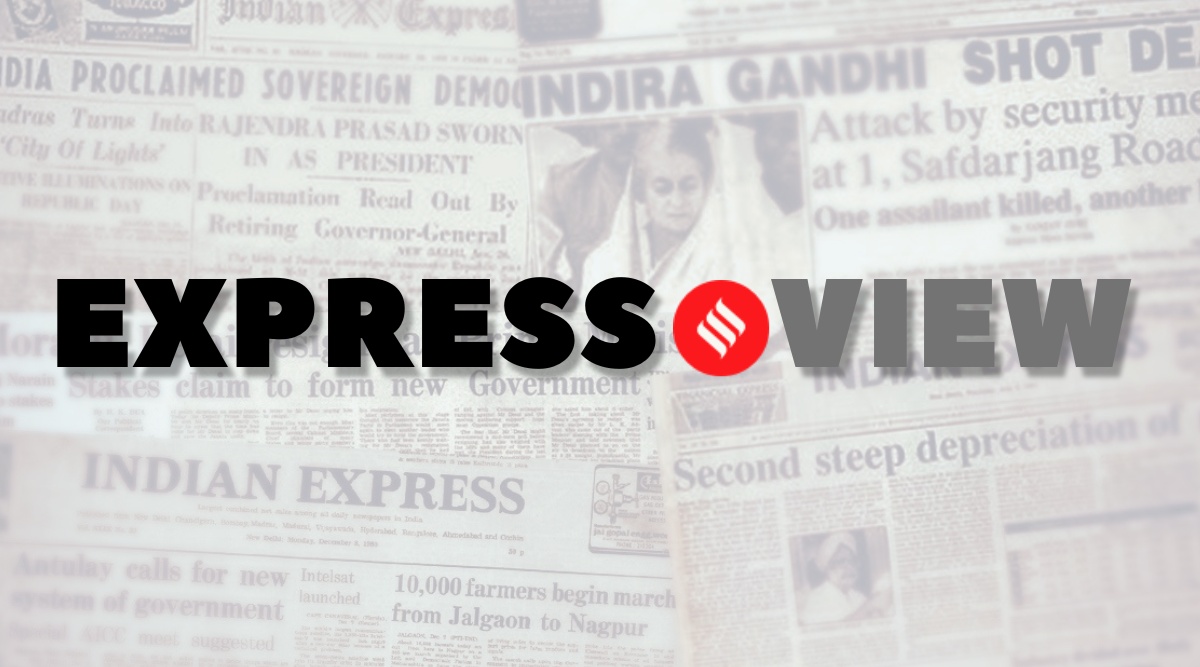Opinion Express view on Centre’s politicisation of a crisis: It’s about Manipur
BJP and the Centre should stop using the sexual assault video to score political points. That adds insult to the state’s many injuries
 As Parliament resumes Monday, the nation waits for answers from those in charge in Imphal and in New Delhi. How do they plan to bring the administration back on track, converse with the Opposition and collectively explore ways to bridge the gulf between communities.
As Parliament resumes Monday, the nation waits for answers from those in charge in Imphal and in New Delhi. How do they plan to bring the administration back on track, converse with the Opposition and collectively explore ways to bridge the gulf between communities. Manipur has been on the boil for close to three months: Over a hundred people have been killed and thousands displaced with little hope of returning home. The sexual assault of Kuki-Zomi women on May 4 — an FIR was filed on May 18 — has to be seen in the context of this extended run of violence and the impunity mobs have enjoyed for months. The barbarity of the crime — one of the survivors told this newspaper that policemen were present when the incident took place — and its video shook the nation. Overnight, it forced the Prime Minister to break his silence and the Chief Justice of India to lay down the law, prompting the question: What if there had been no video?
It’s important to raise this given how the discredited Chief Minister N Biren Singh — whose partisanship is as stubborn as his Central shield is strong — has done little. Some arrests have happened but there’s hardly any evidence of purposive action. The Home Minister’s frenetic trip, the security meetings — all look like lines drawn on water. The CM has done nothing to signal that he is committed to reaching across the divides. Instead, what is on display is just the opposite. From the Prime Minister down, the BJP leadership and senior voices in the Government, amplified by their social media machinery, are framing the horrific video as evidence to be mined in political one-upmanship. Of course, panchayat elections in West Bengal have seen bloodshed and violence under the nose of the police and with many ruling TMC workers complicit; surely, there are incidents of violence against women in state after state. But to cite these in the same breath as the Manipur incident is an insult to the women in that video; to all women in the state, of all ethnicities, who are vulnerable in the conflict. It cheapens the discourse, doesn’t behove a government or party that, just months ago, was packaging its electoral success in the Northeast as a testament to its “inclusive politics. Circumstances alter cases. The Prime Minister used strong words to underline the atrocity in the video but his appeal to “all Chief Ministers”, his invoking “Rajasthan, Chhattisgarh, or Manipur… any corner of India… any state” set the specious tone for others to echo. Certainly, the Centre should instruct state governments to enforce the rule of law when needed but the Manipur sexual assault is about the people of Manipur, it’s about an absent Manipur government and an ineffective Manipur Police — it’s not about Kolkata, Jaipur, Raipur or Patna. Both the Centre and the state need to acknowledge that scoring studio debating points — helped by your megaphone minions on TV — is not the need of the hour.
As Parliament resumes Monday, the nation waits for answers from those in charge in Imphal and in New Delhi. How do they plan to bring the administration back on track, converse with the Opposition and collectively explore ways to bridge the gulf between communities. Indeed, the fault-lines in Manipur can set off cracks beyond its borders, as is evident from the reaction in neighbouring Mizoram, where a local outfit has threatened the resident Meitei population. There is also a transnational dimension, as many communities have kinship ties with groups in Myanmar, which is roiled in a conflict of its own. In recent years, the Centre has done well to engage better with the region, improve infrastructure, raise hopes of better economic prospects. It should stop using Manipur as a debating point, that complicates the problem, that also adds insult to the state’s many injuries.



